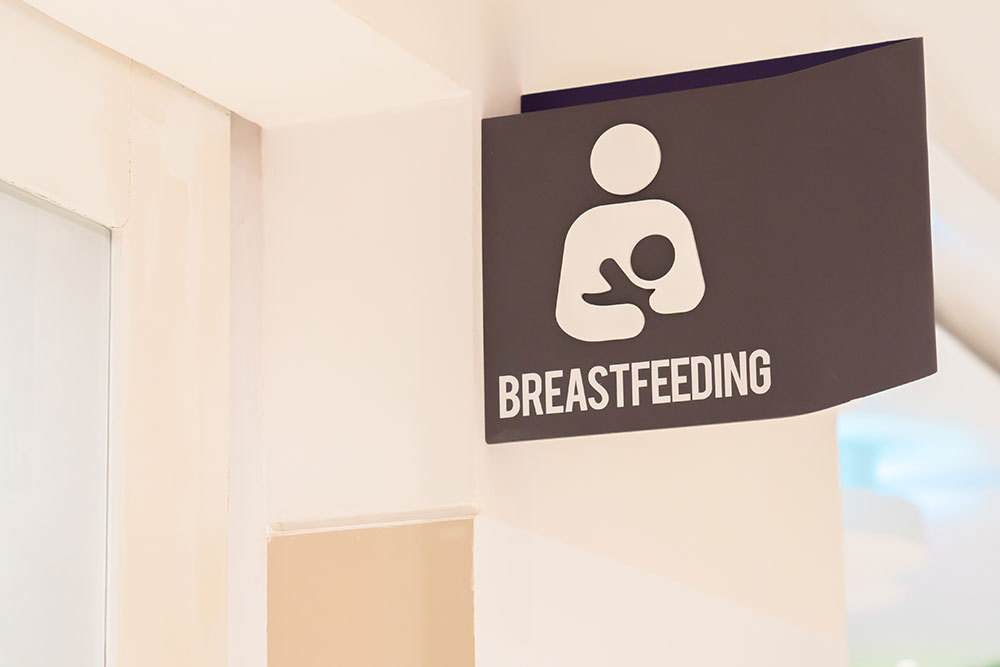It’s a well known and extensively accepted proven fact that, for many people, the times between Dec. 26 and Jan. 1 are a whole blur. Whether or not you have been utilizing up the remainder of your PTO, your workplace was closed, you have been chasing your youngsters round as they soaked up the thrill of winter break, and even should you have been within the workplace that week, construction and routines didn’t appear to exist throughout these seven days. However, this previous break one thing really superb occurred: The president confirmed as much as work and signed a brand new spending invoice that included two acts to raised shield new and anticipating dad and mom within the office.
On Dec. 29, President Biden signed the $1.7 trillion federal spending invoice that lays out how the federal authorities shall be funded in 2023. Spending payments are handed yearly (in any other case we face a authorities shutdown), however oftentimes tucked away amongst all the finances provisions are extra legal guidelines that congress needs to cross on the similar time. This yr’s invoice included the Offering Pressing Maternal Protections (PUMP) for Nursing Moms Act and the Pregnant Employees Equity Act, each of which assist to degree the enjoying discipline for pregnant and nursing dad and mom at work.
PUMP for Nursing Moms Act
Previous to this spending invoice, there have been federal legal guidelines in place to make sure lined staff have been provided breaks to pump as wanted for one yr following the delivery of a kid. Moreover, employers have been required to supply lactating dad and mom with an area to pump “apart from a toilet that’s shielded from view and free from intrusion from co-workers and the general public.” Nonetheless, these legal guidelines didn’t apply to employers with fewer than 50 staff if “compliance with the supply would impose an undue hardship” on the enterprise. Additionally, employers weren’t required to pay their staff for time spent pumping—that means lactating dad and mom must clock out each time they wanted to pump.
With the brand new PUMP for Nursing Moms Act, present protections are nonetheless in place, however they’ve been expanded. First, lactating dad and mom, no matter whether or not they’re hourly or salaried staff, now get these rights for as much as two years after the delivery of a kid as a substitute of only one yr (which aligns with the newest breastfeeding steering from the American Academy of Pediatrics). Additionally, if an worker is multitasking (a talent each new father or mother rapidly masters) by working whereas pumping, then the brand new legislation says they have to be compensated for that point. Nonetheless, there are nonetheless exemptions for employers with lower than 50 staff in addition to for flight crews who’re within the air, no matter how many individuals the airline they work for employs.
Pregnant Employees Equity Act
Earlier than the Pregnant Employees Equity Act, we had the Being pregnant Discrimination Act of 1978 (sure, we’ve been working below the identical legislation for greater than 40 years). This legislation was written to make sure pregnant staff and candidates weren’t handled in another way from non-pregnant individuals—together with “hiring, firing, pay, job assignments, promotions, layoffs, coaching, fringe advantages, and every other phrases or situations of employment.”
The Being pregnant Discrimination Act of 1978 ensured pregnant staff might keep of their roles and proceed to work of their positions for so long as they have been bodily capable of. Moreover, whereas employers have been (and nonetheless are) required to make sure a protected work setting, this legislation acknowledged that an employer “has no further responsibility to guard pregnant or probably pregnant staff from harmful work situations.” Equally, employers weren’t legally required to supply affordable lodging for a pregnant worker if they’d not present those self same lodging for one more worker with a separate medical situation (that means, they should deal with a pregnant worker the identical approach they’d deal with an worker present process one thing like most cancers remedy).
Regardless of this legislation, the American Civil Liberties Union (ACLU) says, “pregnant staff are routinely denied non permanent job lodging they should have a wholesome being pregnant—like schedule modifications or a break from heavy lifting—even when co-workers who aren’t pregnant obtain such lodging. Pregnant employees proceed to be fired, pressured to stop, or placed on unpaid depart after they ask their employer for non permanent modifications of their job duties in order that they’ll hold working.”
That is the place the Pregnant Employees Equity Act is available in. Underneath this new legislation, being pregnant is handled extra like a incapacity is within the Individuals with Disabilities Act (and on this case, that’s a good factor). Employers with 15 or extra staff will now be required to supply affordable lodging (except the lodging would trigger undue hardship) for certified pregnant staff—which is any worker (or applicant) who “with or with out affordable lodging can carry out the important capabilities of the [job].” Moreover, employers might not deny employment alternatives to somebody simply because they’re pregnant and can want affordable lodging to do the job, and so they can not require a pregnant worker to take depart—both paid or unpaid—from their job if an inexpensive lodging could be made.
Whereas this new legislation could seem fairly much like the Being pregnant Discrimination Act of 1978, what it does is present clearer language round offering affordable lodging to pregnant employees—whether or not it’s extra frequent toilet breaks or distant work choices. This implies even when an employer doesn’t supply lodging to an worker with a medical situation, that doesn’t excuse them from offering lodging to a pregnant worker. It really strengthens pregnant employees’ rights.
The expanded entry and compensation necessities included within the PUMP for Nursing Moms Act turned efficient as quickly as President Biden signed the act into legislation on Dec. 29, 2022. The efficient date for the Pregnant Employees Equity Act is June 27, 2023.
These modifications could seem considerably minor, however they are surely large wins for anticipating and nursing dad and mom. Now, if solely we might receives a commission household depart and childcare help into certainly one of these payments sooner or later.













You must be logged in to post a comment Login